Hauptinhalt

“The dangers of fleeing, the shell-shocked lives in foreign lands, poverty, fear and all-consuming homesickness – in our modern times, certain groups of people are still experiencing this each and every day, making it all the more pressing for us to truly comprehend the meaning of the word exile. Learning about the events that occurred during that period of history makes it possible for us to better understand the people who are looking for refuge in Germany today.”
Herta Müller, Nobel Prize-winning author and patron of Exilmuseum Berlin
Werkstatt
Exilmuseum
A Place to Think about Exile
The museum project's first home is located at Fasanenstraße 24 in Berlin-Charlottenburg. The Exilmuseum will open here in 2027.
At the moment, this is the location of the ‘Werkstatt Exilmuseum’. Here, we are working on the development of the Exilmuseum and regularly hold exhibitions.
A particular focus of our work is on education: school classes of various ages will engage with topics such as exclusion, flight, arrival and building a new life in exile. In this way, we explore Nazi history with a focus on survival in exile.
Current
News
Exile
What is Exile?
The focus of Exilmuseum is the period 1933-1945. Persecuted by the Nazis, about half a million people fled abroad in these years. Numerous of them left Germany for what was hopefully a life-saving place of exile from Berlin’s central railway station, the Anhalter Bahnhof. It was always a departure into the unknown, often followed by a lifelong feeling of alienation, fear and longing for home.
Exilmuseum Berlin wants to tell the stories of the people who faced this fate - and at the same time build a bridge to the present: How did flight and uprooting become central experiences of our time? What is the connection between exile then and now? And what can we learn from history for today?
Stiftung Exilmuseum has already established a broad network of global partnerships and collaborations. This cooperation is reflected at the Exilmuseum Berlin, but also in projects in other locations. In this way, the discourse on the subject of exile can be continued with a wider audience.
At Anhalter
Bahnhof
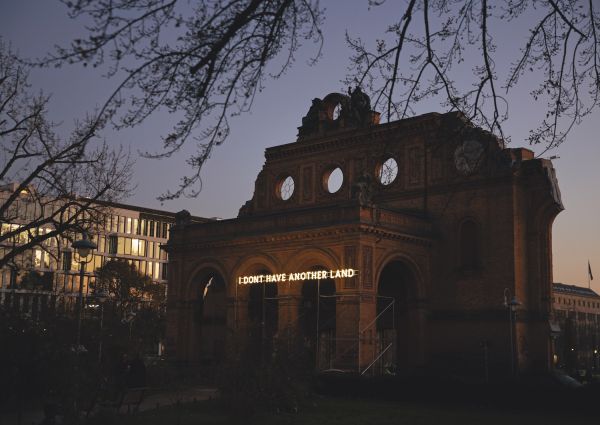
The second important location of the Exilmuseum is at Anhalter Bahnhof Berlin. From 1933 onwards, countless people fled into exile from the Nazis via what was once Berlin's largest long-distance railway station. From 1942 onwards, it was one of Berlin's deportation stations. Today, only the ruins of the entrance portal remain.
At this location in Berlin, which is significant for the history of exile, Stiftung Exilmuseum is launching a series of exhibitions of artistic installations. The site will thus become a publicly accessible place of remembrance and art.
Current art work: I Don't Have Another Land by Nathan Coley
In the long term, a new building for the Exilmuseum is to be constructed on the open space between the ruins of the former Anhalter Bahnhof railway station and the adjacent football pitch. For its realization, the foundation Stiftung Exilmuseum Berlin launched an architectural competition in cooperation with the Berlin Senate’s Department and the district of Friedrichshain-Kreuzberg. The winning design by Danish architect Dorte Mandrup impresses with its curving, crescent-shaped façade, which grants plenty of space for the portico ruins while simultaneously seeming to embrace them protectively.
The
Foundation
Exilmuseum is a civic initiative. It closes a gap in Germany's culture of remembrance and and addresses pressing contemporary issues.
Patrons
Herta Müller
Joachim Gauck
Executive Board
Bernd Schultz
Dr. Heinz Berg
Dr. Christina Stresemann
Robert Unger
Board of Trustees
Peter Raue (Chair)
Director
Ruth Ur
Assistance to the Managing Director
Nicole Skoczowsky
Head of Strategy
Lukas Geck
Head of Education
Philipp Sukstorf
Lead Research Associate
Sarah Blendin
Contact
Stiftung Exilmuseum Berlin
Fasanenstr. 24
10719 Berlin
Phone: +49 30 7673 3912 0
info@exilmuseum.berlin
Information and materials for press coverage
Your donation helps to make Exilmuseum a reality!
IBAN: DE81 1007 0100 0298 8244 00
BIC: DEUTDEBB101
Are you thinking about making a donation or endowment for the Exilmuseum? We are happy to advise you on all your options. Feel free to contact us.
Stiftung Exilmuseum is supported by

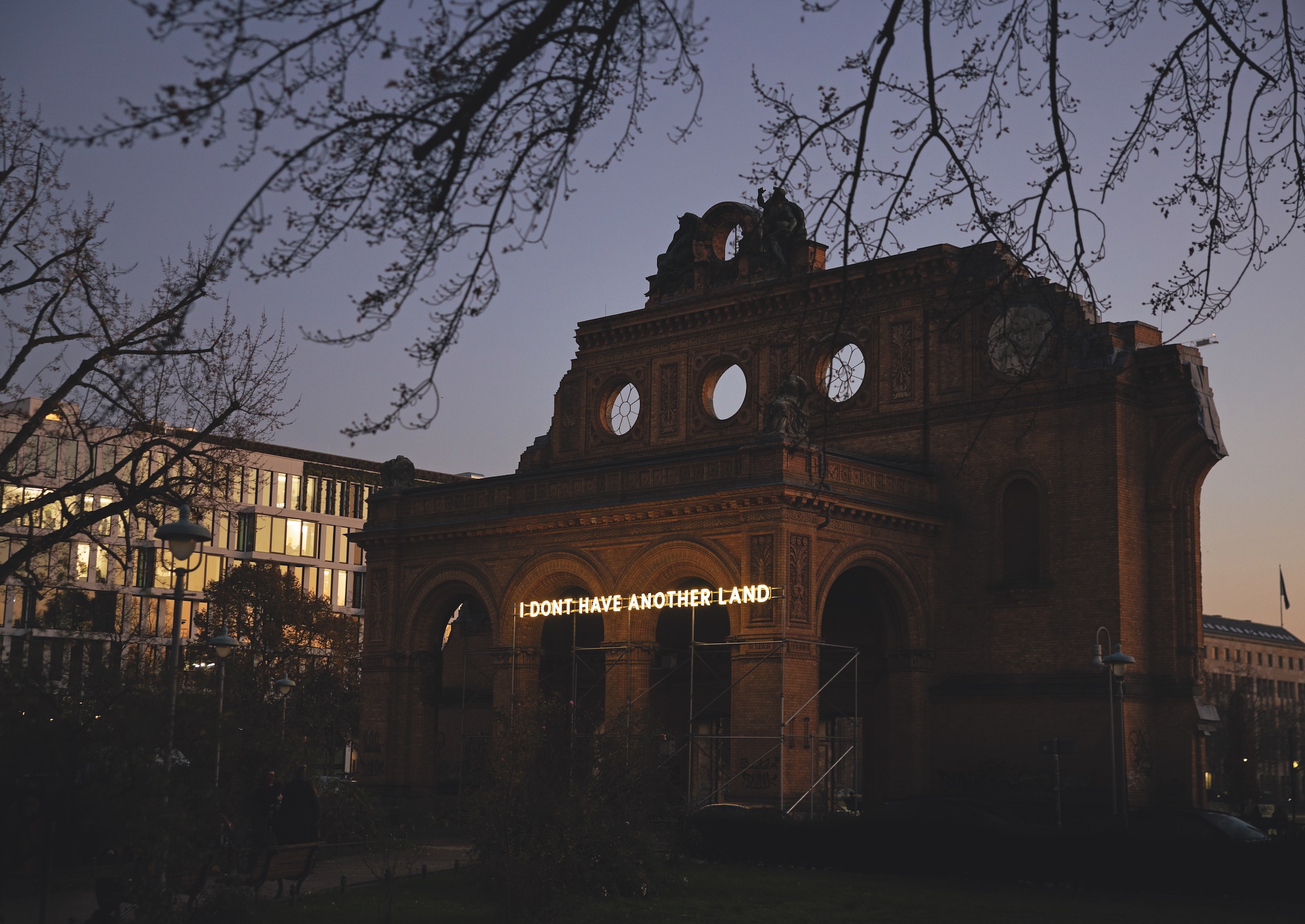

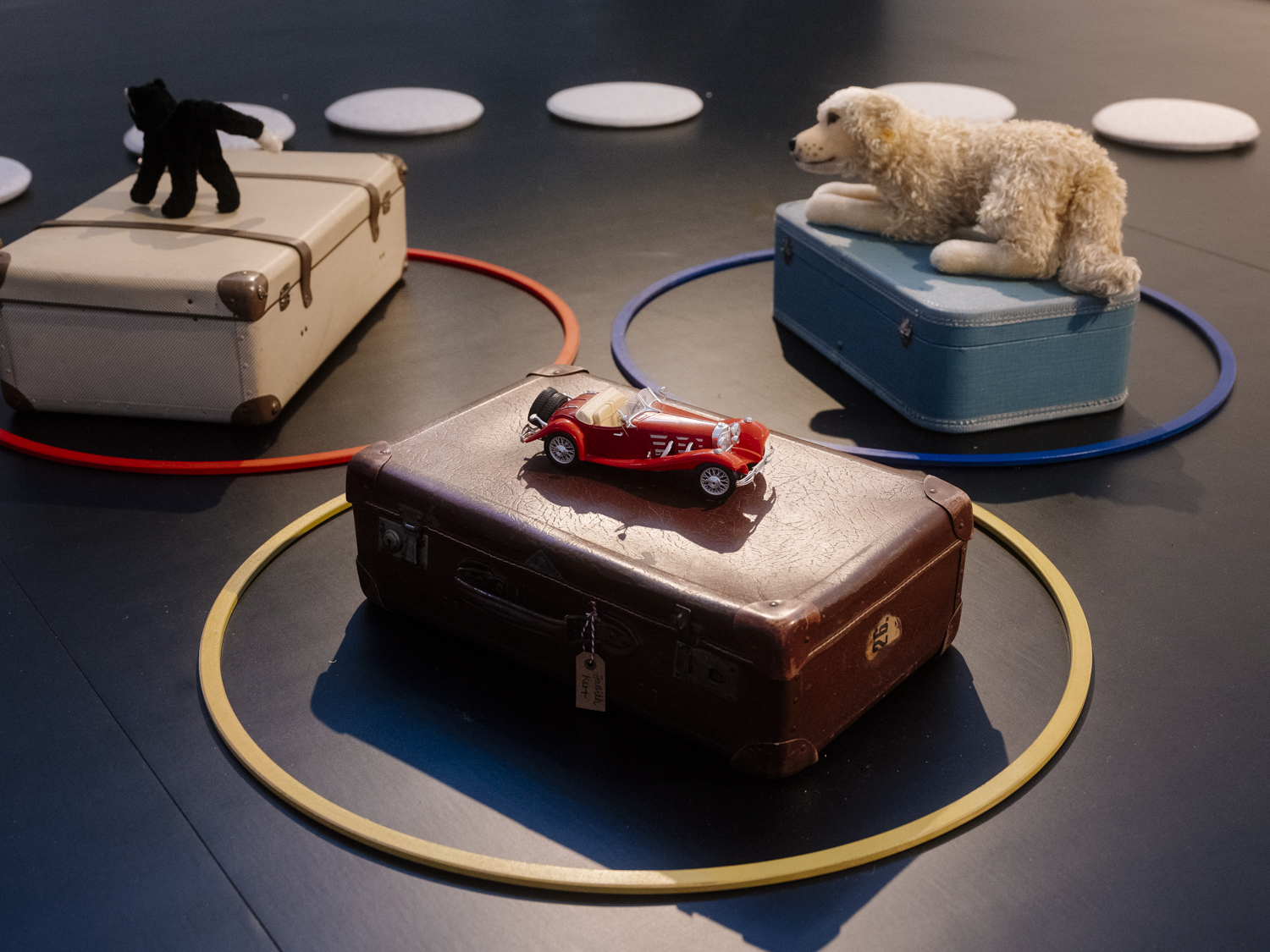
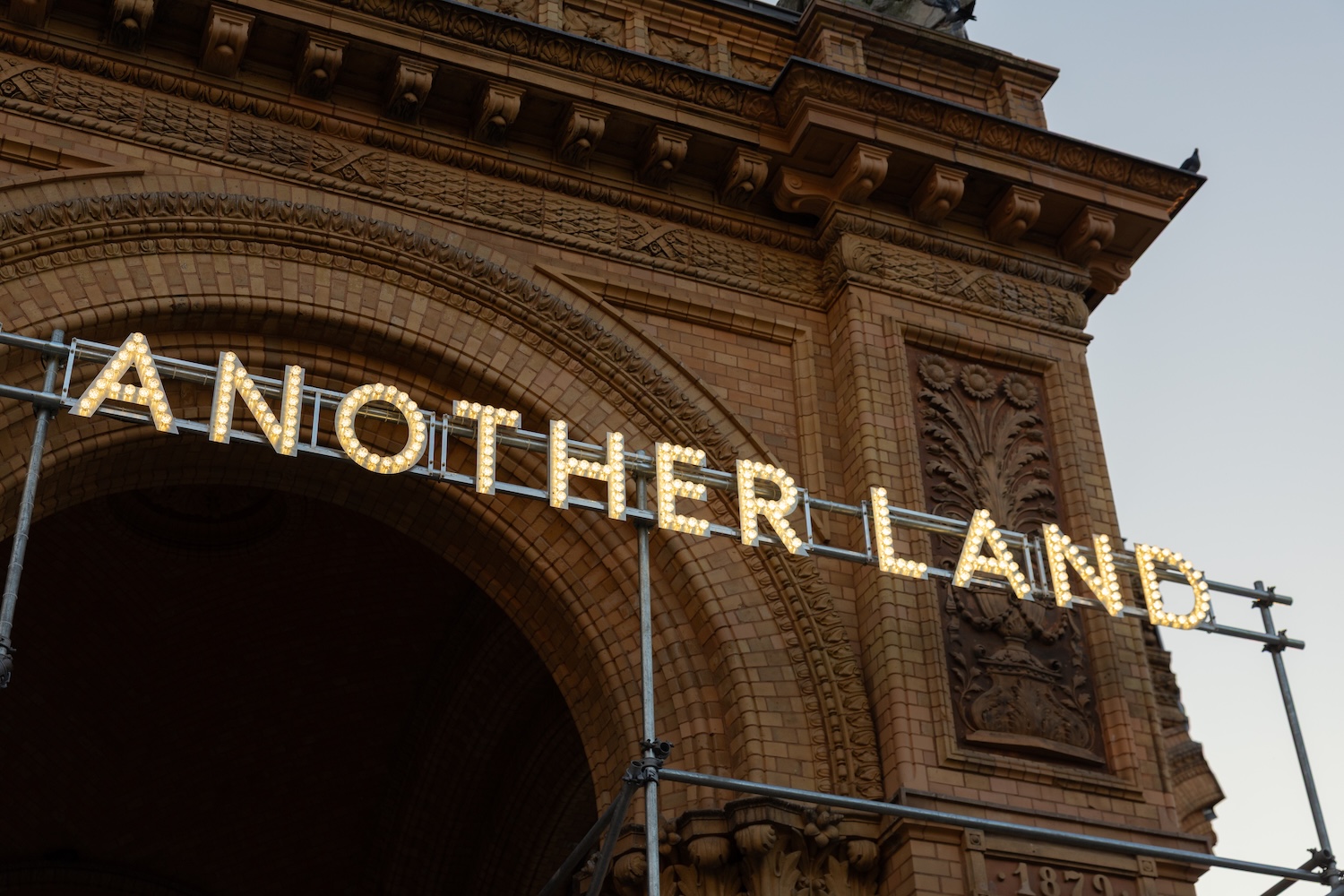
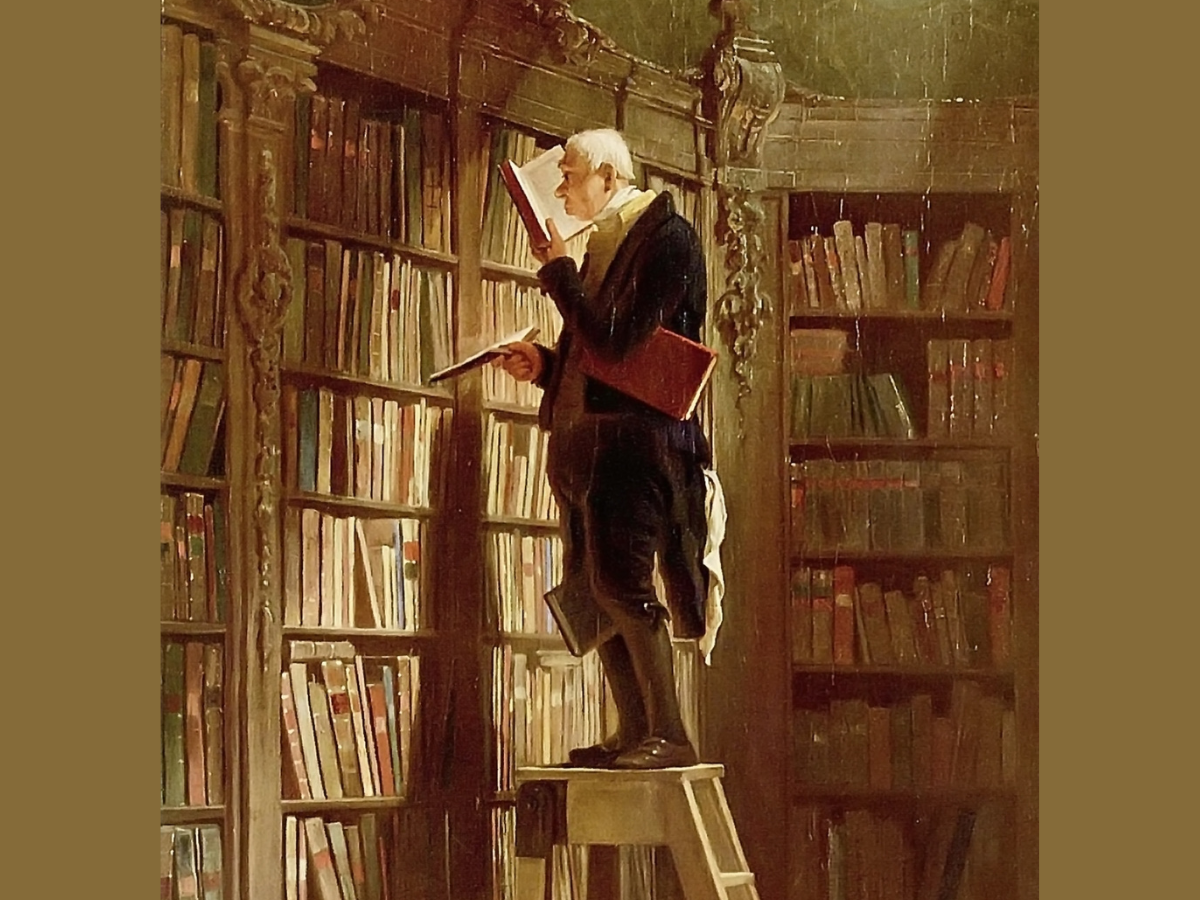
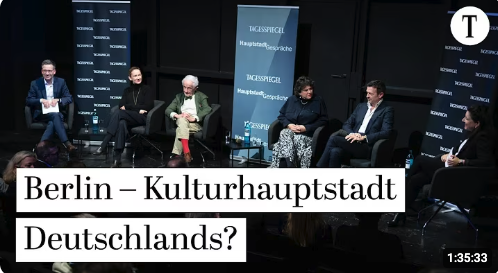

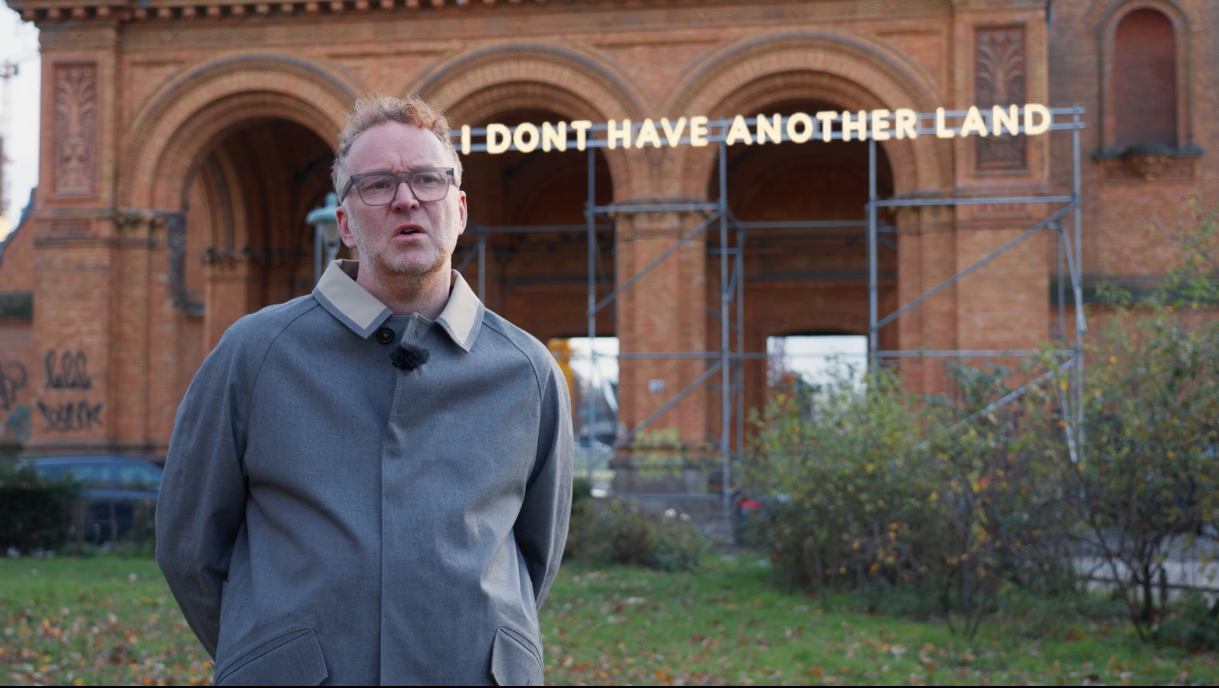
Resonance
Statements on the Exilmuseum Berlin